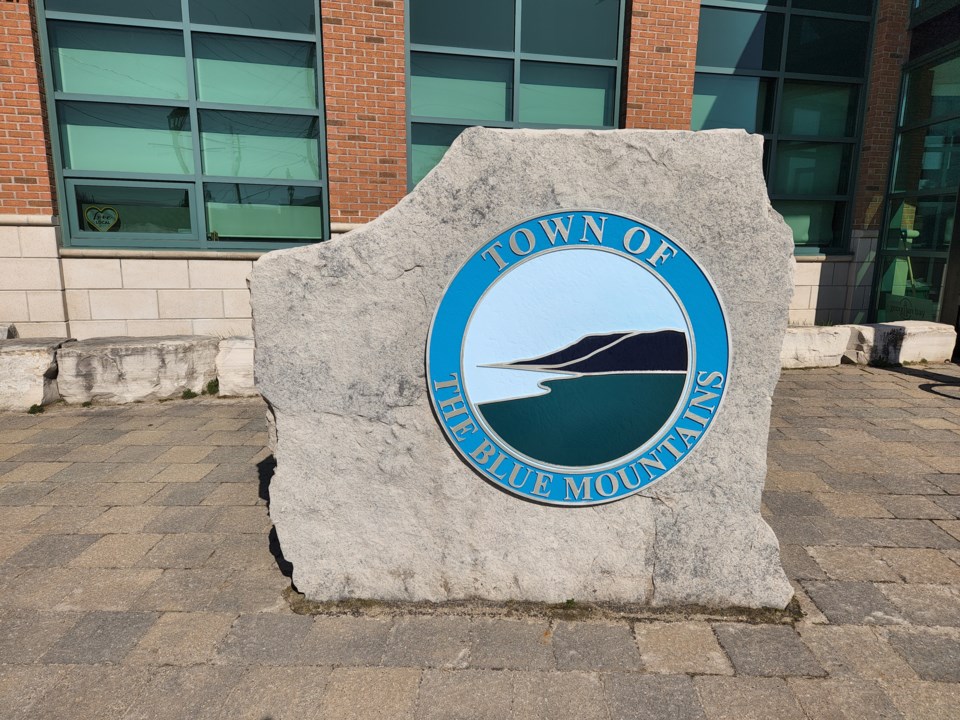The Town of The Blue Mountains is taking its concerns about Bill 23 - More Homes Built Faster Act - directly to the provincial government.
Town officials have confirmed that The Blue Mountains will have an opportunity to present its thoughts about the legislation to the province’s standing committee on heritage, infrastructure and cultural policy. The town will present to the committee on Thursday, Nov. 17 at approximately 5 p.m.
At council’s meeting on Nov. 14, town staff notified council that they were successful in securing a slot to present to the committee and provided council with a full report about the bill and the town’s concerns.
Will Thomson, director of legal services, presented the report to council and outlined the town’s primary concern. The delegation in front of the committee will have just seven minutes to present its findings and Thomson said the town will focus on a couple of major concerns.
Thomson said the town will focus on two major concerns: Bill 23’s impact on short-term accommodations (STA) and the bill’s definition of what constitutes “affordable” housing.
The report outlines that the legislation would allow up to three separate housing units on a single lot. Town officials are concerned this could apply to STAs and could undermine the town’s policy in place to regulate that industry. The other major concern is the province’s intention to define affordable housing as houses that are 80 per cent or less of regular market value, which would allow homes at those prices to be exempt from development charges. Thomson said in a community like The Blue Mountains that could mean all homes $1 million or less would not pay development charges.
“It doesn’t contribute to more housing. It just deprives the town of development charges,” said Thomson. “Affordable should be pegged to a number that is truly affordable.”
Other town concerns include: the province’s plans to eliminate the ability for third parties to appeal development approvals to the Ontario Land Tribunal, changes to the Conservation Authorities Act and the requirement that 60 per cent of development charges and parkland dedication fees collected by municipalities be spent or “allocated” each year.
CAO Shawn Everitt reported to council that the town has already presented its concerns to Simcoe-Grey MPP Brian Saunderson and Bruce-Grey-Owen Sound MPP Rick Byers. The town organized a virtual meeting with both MPPs last week to go over the legislation. Mayor Alar Soever, Mayor-elect Andrea Matrosovs and Coun. Rob Sampson participated, along with representatives from Grey County.
Coun. Paula Hope praised the work that went into the report and said it should be noted for the province that The Blue Mountains has been doing its fair share in terms of growth and new housing. Hope pointed out that the town has 4,500 housing units in the pipeline, compared to the province and county’s expectation of 3,600 units.
“This community has been very responsible in terms of growth. It’s important to position us as good citizens,” she said.
Everitt said that is a point the town will make to the committee.
“The Town of The Blue Mountains doesn’t have any issue with building houses. There are plenty of houses being built,” he said. “The issue is making sure the right types are being built.”
Sampson said he appreciates the staff report and its focus, but said it is time for municipalities across the province to take a look in the mirror. Sampson said provincial policies require municipalities to consider a full range of housing when approving developments and that’s not what has been happening to date.
“The provincial policy statement is quite clear and we have not met it. Our official plan and the county official plan doesn’t meet it. Therein is the problem. As municipalities, we have to stop pointing the finger,” said Sampson. “We’ve got to put our foot down and tell developers that they have to show a proper mix and range of housing.”
Sampson said he hoped the incoming council would take those steps.
“Part of the message to the province should be: we know we are part of the problem. Part of the solution is doing what is in the province policy and we’re not doing it,” he said. “The province is frustrated, hence what looks like heavy handedness. If you don’t recognize we’re part of the problem, we’ll never get the right solution.”



